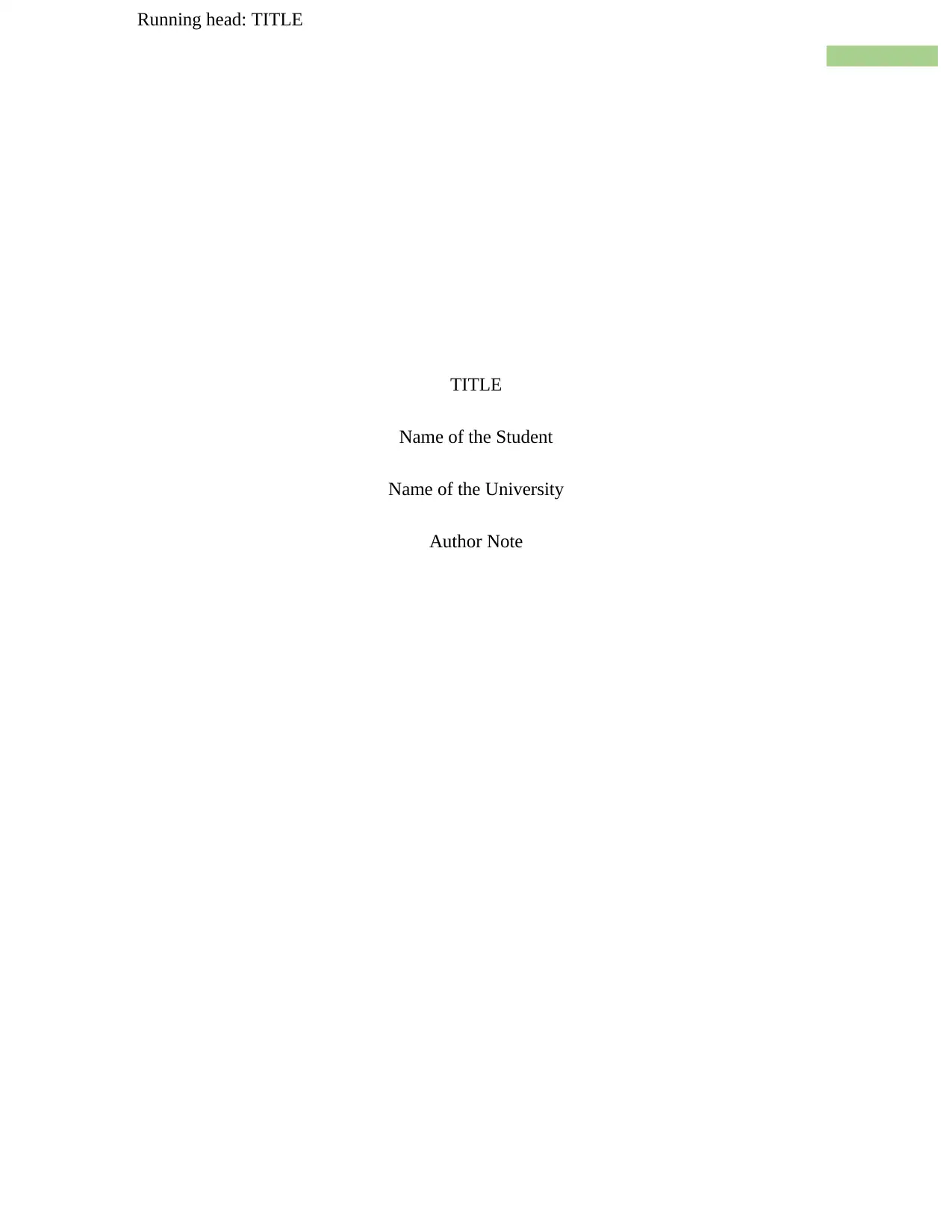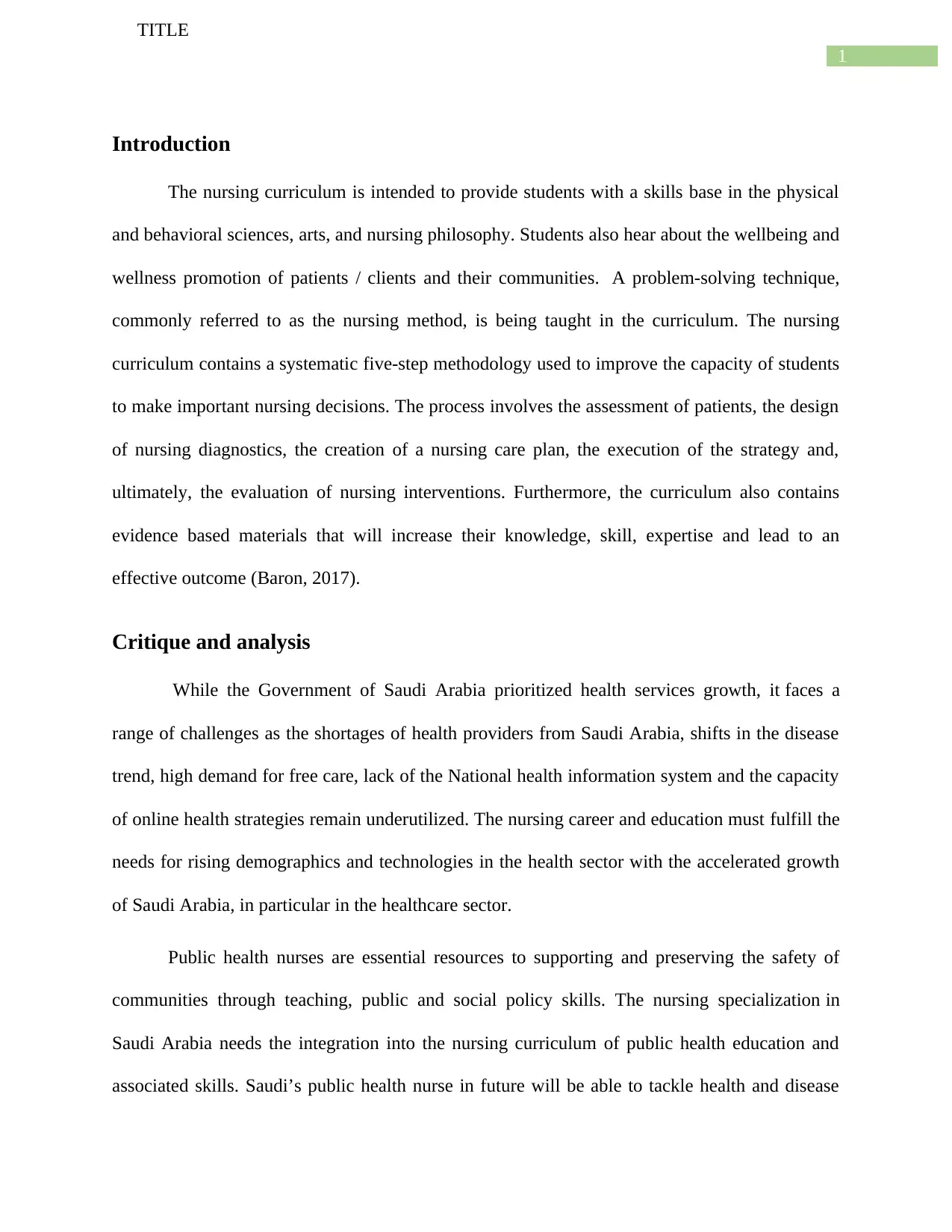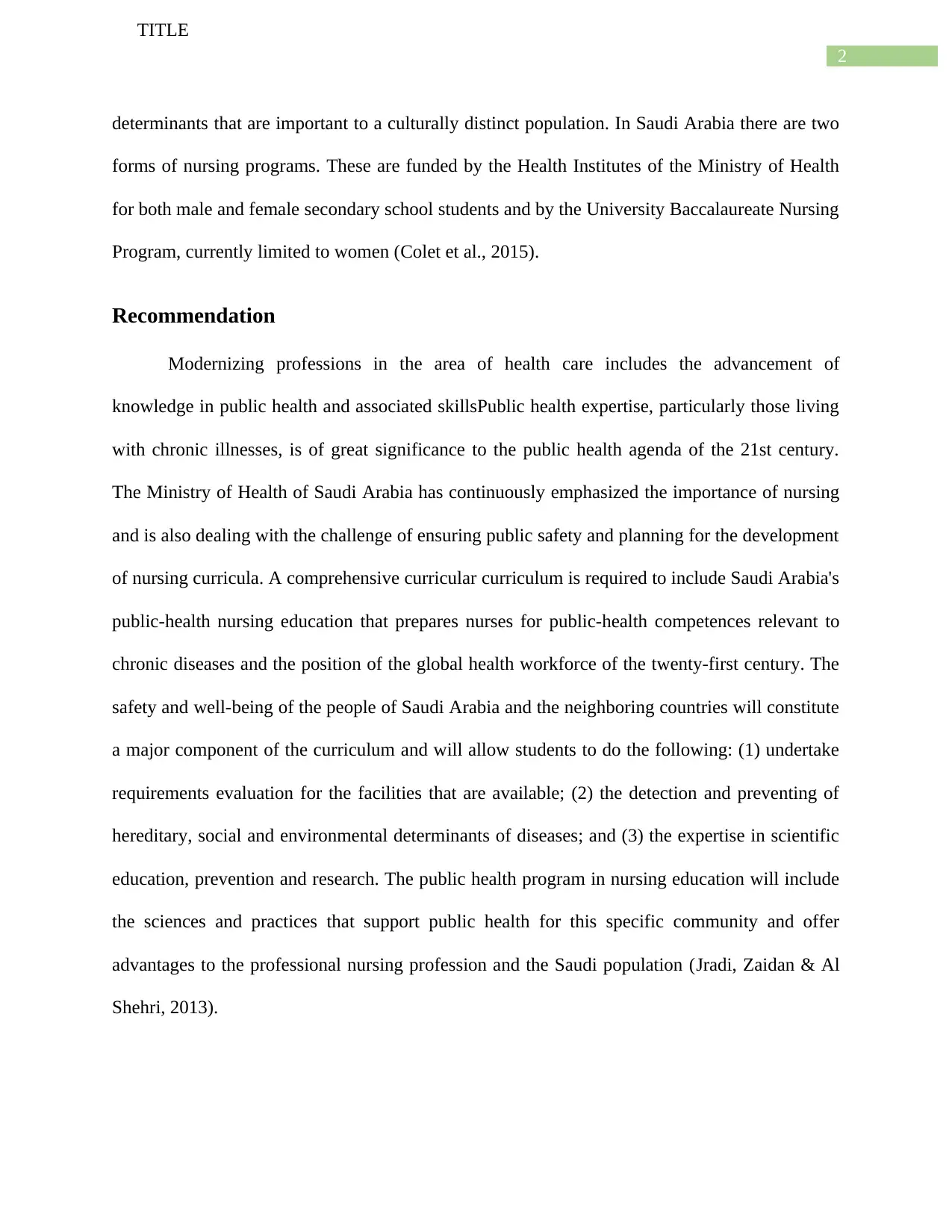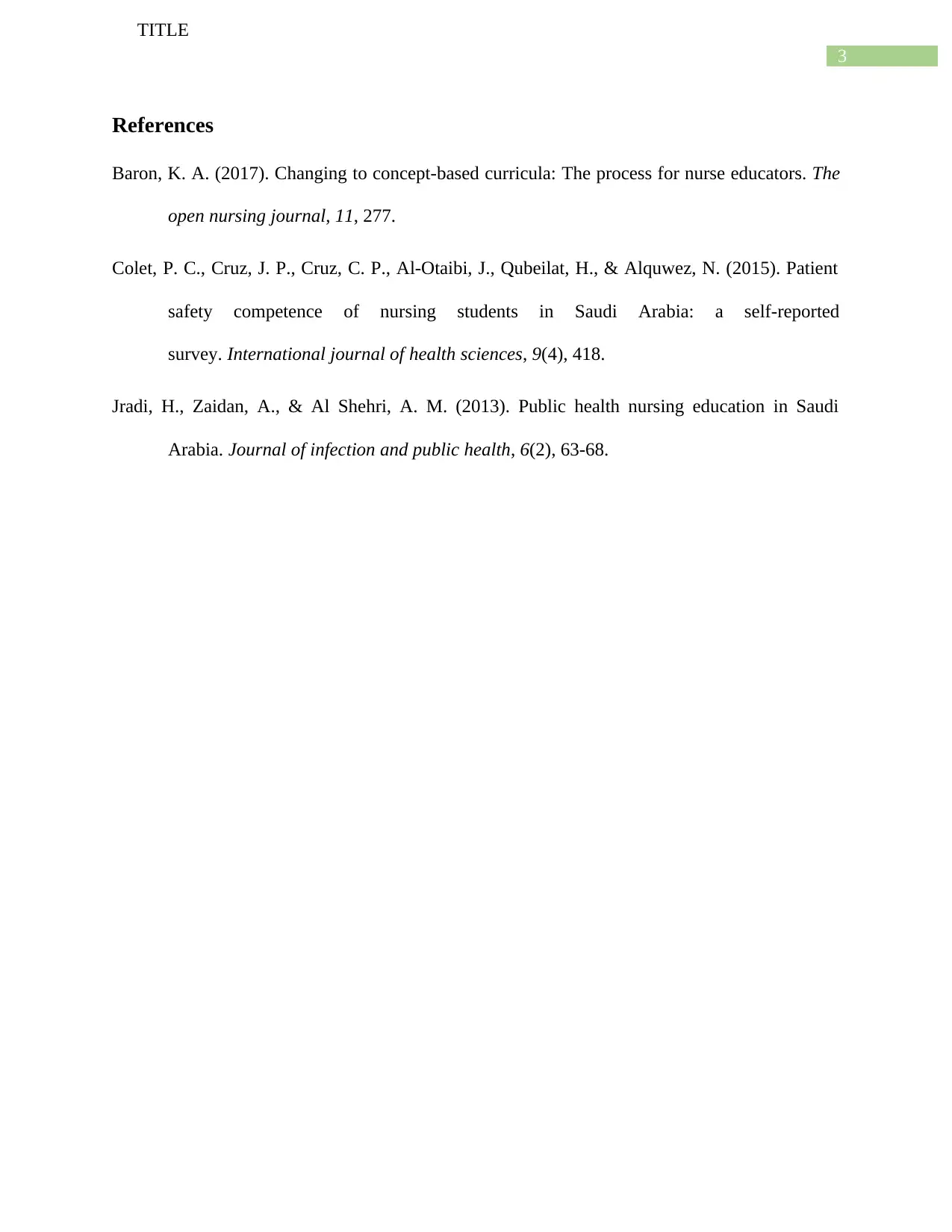Nursing Education in Saudi Arabia: Curriculum Analysis and Critique
VerifiedAdded on 2022/09/13
|4
|742
|17
Essay
AI Summary
This essay provides an in-depth analysis of the nursing curriculum in Saudi Arabia. It begins with an introduction to the curriculum's core components, including the integration of physical and behavioral sciences, nursing philosophy, and the nursing process. The essay then critiques the current state of nursing education in Saudi Arabia, highlighting challenges such as shortages of healthcare providers, shifts in disease trends, and underutilized online health strategies. It emphasizes the need for public health education integration into the curriculum to address the needs of the rising demographics and technological advancements in the healthcare sector. The essay recommends a comprehensive curriculum that prepares nurses for public health competencies, particularly in managing chronic diseases, and supports the development of skills in assessment, disease prevention, and scientific education. The goal is to enhance the well-being of the Saudi population and the nursing profession through evidence-based practices and public health initiatives.
1 out of 4











![[object Object]](/_next/static/media/star-bottom.7253800d.svg)